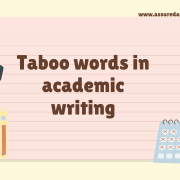Introduction
During the course of the year, you will have engaged in a process of self-analysis in relation to your professional skills and should have made demonstrable progess in advancing specific skills competencies. We assess this learning and developments at two stages. The first assessment falls in the first term when you will have to undertake a process of self-analysis and present an action plan for the remainder of the year. The second assessment falls at the end of the second teaching term when you will need to present a portfolio that demonstrates your progress and learning. Each student will have a different starting point (some students having extensive working experience, others having limited work experience, some having very little) and so the nature of development will therefore vary considerably between students.
Assessment and the module learning outcomes
The assessment has been designed to meet the learning outcomes. The table below shows the learning outcomes for the module. You will need to demonstrate all of the following to pass the module.
Exercise: circle the key words in the learning outcomes. Which are important? How can you demonstrate these?
Module learning outcomes
- Developed greater personal knowledge and insight into their own work-related strengths and weaknesses.
- Developed a personal development programme to advance identified work- related skills.
- Undertaken a range of planned and emergent activities to develop their skills and experience in specific areas.
- Have demonstrated an understanding of the role of personal and professional development in advancing work based performance and career aspirations.
- To engage in a process of self-analysis and professional development planning and goal setting.
- To proactively initiate or seek out development opportunities
- Be able to engage in realistic reflection on their own performance.
Assessment Task: Reflection and Portfolio
The reflection and portfolio accounts for 100% of the module marks. You should split your submission into two parts:
Part 1: Reflection
A written reflection on the professional skills you have developed so far during your Masters degree. The reflection might include
- A brief description of your starting point on the module and an overview of what skills you thought you needed to develop at the beginning of the Masters course
- A reflective approach to understanding your own professional development needs
- An analysis of critical incidents experienced during the module and what you have learned
- How you approached designing your action plan
- An evaluation of the activities you have undertaken so far during the Masters programme to develop your skills. You should also reflect on whether on the quality of progress you have made. What went well?
What could you have improved on? - How you intend to take forward the process of professional self-management in future.
- How your thinking has been shaped by relevant theory.
The reflection should be around 2000 words
Part 2: Portfolio
“A portfolio is a collection of evidence, usually in written form, of both the products and processes of learning. It attests to achievement and personal and professional development by providing critical analysis of its contents”
(Webb, Endacott, Gray, McMullan, Miller & Scholes, 2002; McMullan, 2008).
The portfolio allows you to document the progress that you have made so far during the academic year. It is a way of providing evidence of your development and to support the reflection.
The composition of the portfolio will depend on the nature of the activities you have undertaken in the year, but will typically include:
- A CV outlining your competencies so far
- Copies of any skills audits or other frameworks that have guided your development during the module.
- A review of the skills you have developed by attending any of the support functions in the University (e.g. Learning and Development Group, Library and Computer Services, Careers and Employability Services, Students Union, Student Services etc).
- Evidence of any work based learning from new or important activities you are involved in throughout the year. These do not necessarily have to be associated with your University life and might include domains (volunteering work, external committee roles,
- The fortnightly blogs will contribute to evidence.
- An Action Plan for future development (with SMART goals)











